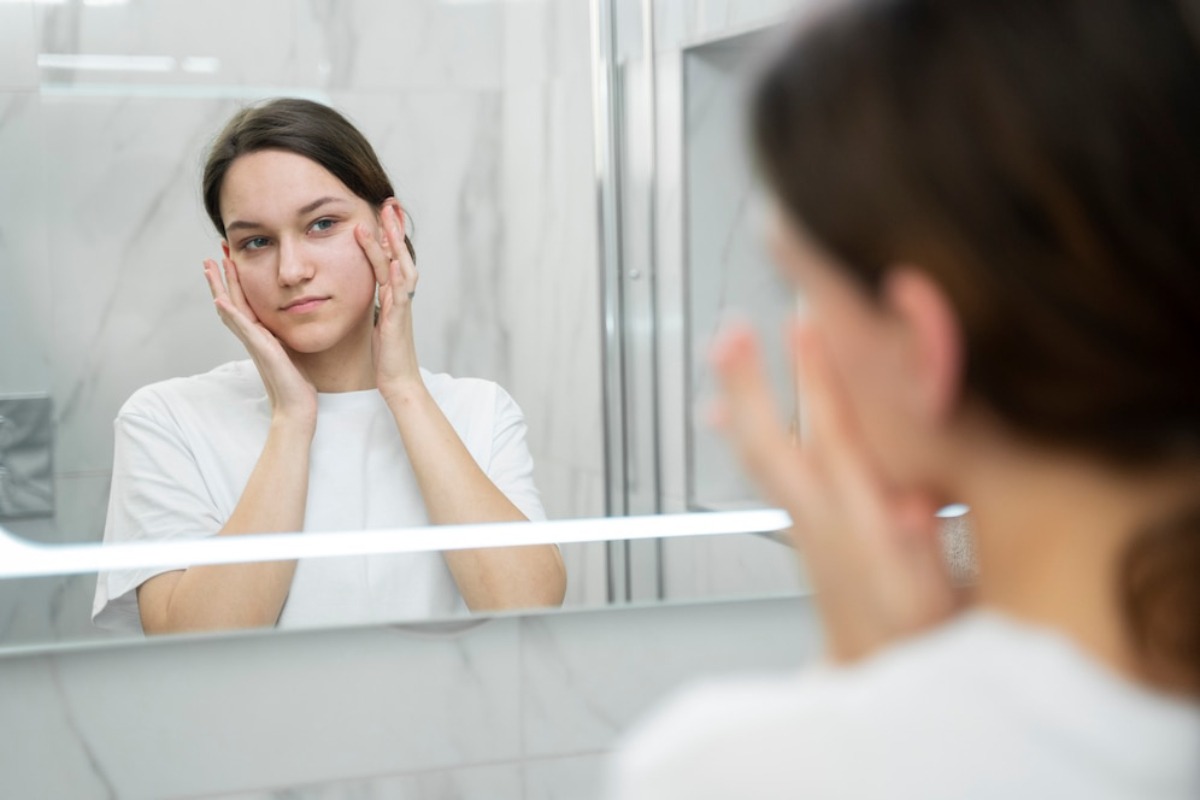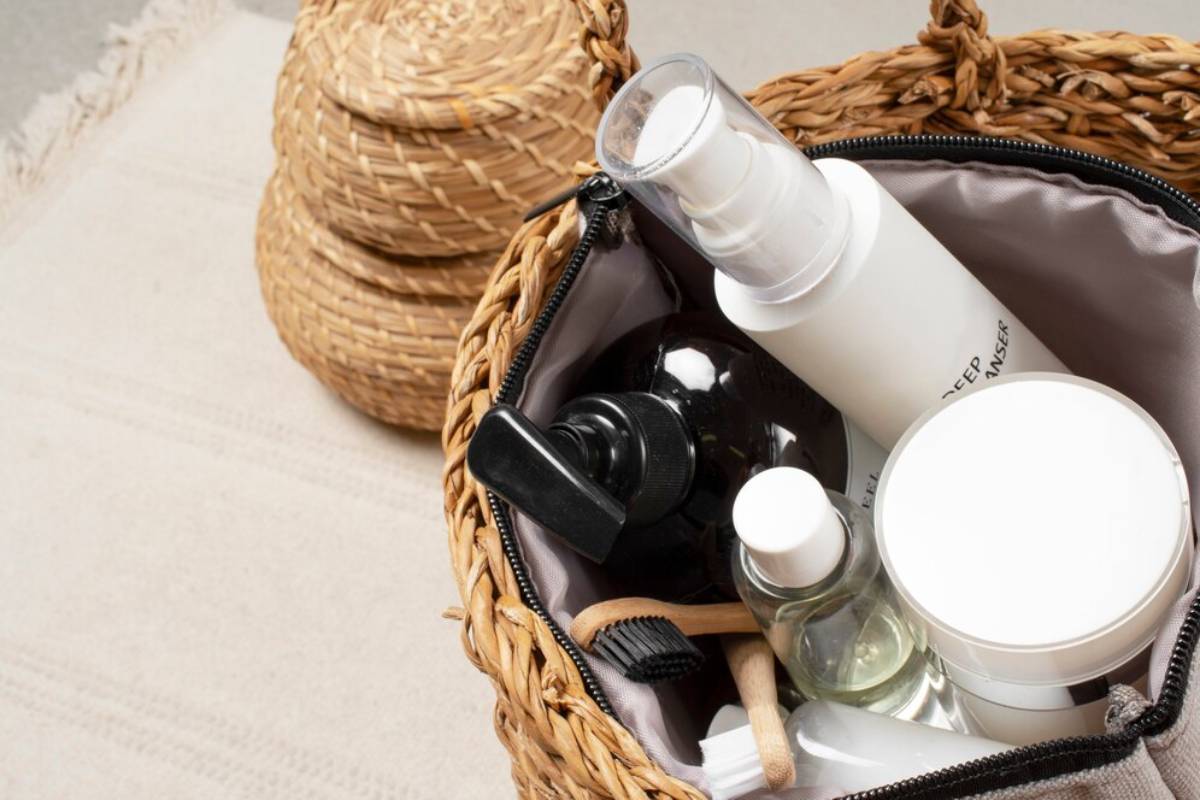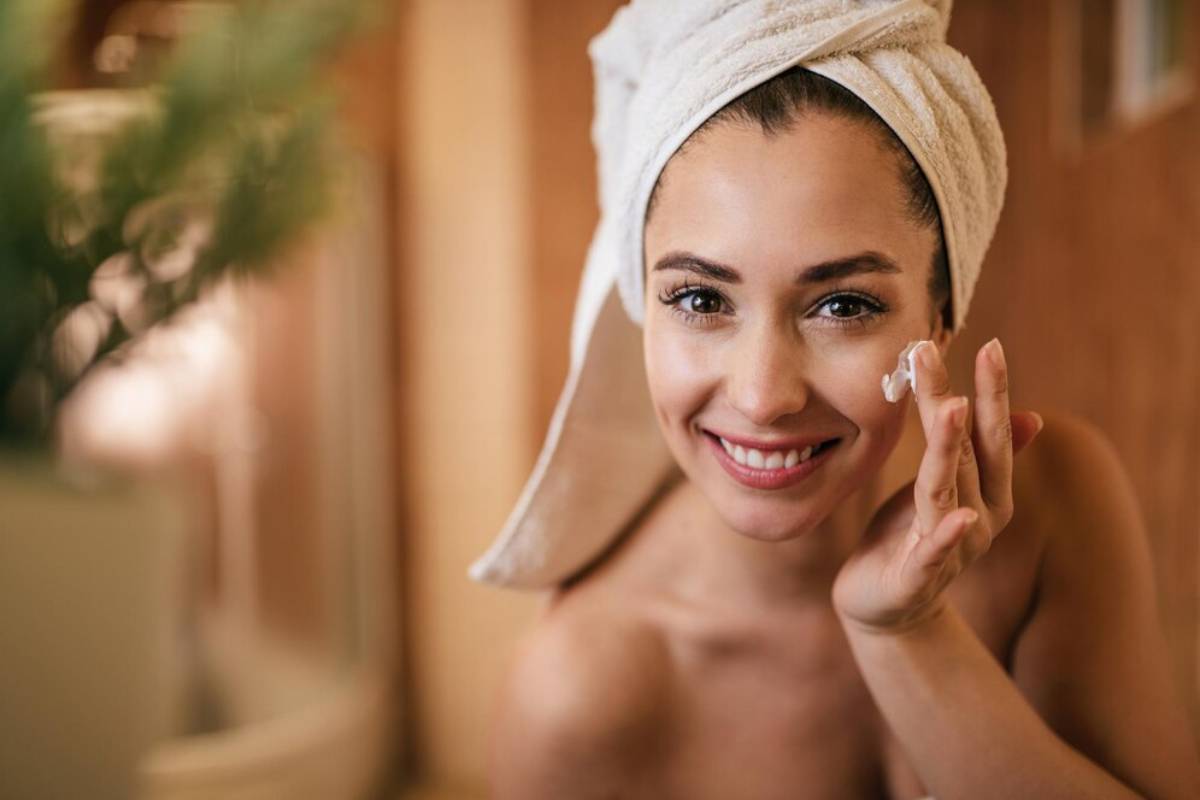
Stress and Skin: Managing Breakouts Naturally
In today’s fast-paced world, stress has become an unwelcome companion for many of us. Stress is a normal part of life. It can come from work, personal issues, or the nonstop flow of information from our devices. However, the impact of stress extends beyond our mental well-being; it can also significantly affect our skin. Stress-induced breakouts, often referred to as “stress acne,” are a common concern for many individuals. In this blog, we’ll look at how stress affects your skin. We’ll discuss cortisol and its impact. Plus, we’ll share natural skincare tips to help manage breakouts.
Key Benefits / Why It Matters
The Role of Cortisol
Cortisol, the notorious “stress hormone,” holds the reins when pressure mounts. When stress rears its ugly head, our adrenal glands release cortisol into our bloodstream. This hormone springs into action during our “fight or flight” moments, helping us respond to life’s curveballs. Yet, when stress lingers like an unwanted guest, cortisol levels can skyrocket, leading to chaos for our skin.
High cortisol can overstimulate sebaceous glands, causing a slick buildup of oil. With excess oil slicking things up, pores may become clogged, inviting acne-causing bacteria to move in. Moreover, cortisol can ignite inflammation, amplifying skin issues like eczema and psoriasis. Knowing how cortisol works is key to managing stress-related skin issues.
Real-Life Applications
Numerous studies paint a vivid picture of the stress-skin connection. A study in the Journal of Investigative Dermatology found that stressed people often get more acne. The American Academy of Dermatology found that stress can slow acne healing. This means breakouts last longer than we want.
Step-by-Step Guide to Managing Stress-Induced Breakouts

Step 1: Adopt a Stress-Reduction Routine
The most effective way to tackle stress acne starts at the source: stress itself. Integrating stress-busting techniques into your daily life can work wonders for your complexion.
Mindfulness and Meditation
Engaging in mindfulness and meditation can soothe the mind and lower stress levels. Spend a few moments daily on mindfulness activities, like deep breathing or guided meditation. These calming practices can reduce cortisol levels. They also support your mental health and skin vitality.
Regular Exercise
Exercise is a dynamic stress-buster that doubles as a skin saviour. By boosting blood circulation, physical activity ushers in oxygen and nutrients to skin cells. Additionally, exercise floods the body with endorphins, those uplifting “happy hormones.” Aim for 30 minutes of moderate activity most days to reap these remarkable benefits.
Step 2: Embrace a Skincare Routine
Crafting a consistent skincare routine designed just for your skin can effectively combat stress-related breakouts.
Gentle Cleansing
Begin with a gentle cleanser, washing away excess oil, dirt, and impurities without stripping your skin’s moisture. Choose products with salicylic acid or benzoyl peroxide. They help clear clogged pores and fight acne-causing bacteria.
Hydration and Moisturization
Keeping your skin well-hydrated is crucial when tackling stress acne. Choose a lightweight, non-comedogenic moisturiser to lock in moisture without clogging pores. Ingredients like hyaluronic acid and glycerin hydrate while pampering your skin.
Step 3: Incorporate Natural Remedies
In tandem with a solid skincare regimen, natural remedies can lend a hand in managing stress-related breakouts.
Tea Tree Oil
Tea tree oil is a natural antiseptic rich in anti-inflammatory properties. Diluted application to affected areas can calm redness and inflammation linked to acne.
Aloe Vera
Aloe vera is famous for its soothing abilities, making it a go-to for irritated skin. This plant can calm inflammation and promote the healing of acne lesions. Simply apply a thin layer of pure aloe vera gel as needed.
Additional Expert Tips & Common Mistakes to Avoid
Best Practices Beyond the Basics
- Dietary Tips: Enjoy a balanced diet full of antioxidants, vitamins, and minerals to support your skin. To nourish your complexion, Include leafy greens, berries, and nuts.
- Adequate Sleep: Prioritize quality sleep to allow your body to rejuvenate. Strive for 7-9 hours per night to enhance both overall wellness and skin health.
Common Mistakes and Misconceptions
- Over-Cleansing: While cleansing is paramount, too much can strip essential oils, producing excess oil. Stick to cleansing twice daily.
- Skipping Sun Protection: UV rays can exacerbate acne and trigger post-inflammatory hyperpigmentation. Always slather on broad-spectrum sunscreen daily, rain or shine.
Advanced Insights / Expert Recommendations
Unique Industry Perspectives
- Stress Management Techniques: Include stress-management techniques in your routine, such as yoga or tai chi. Such practices both drive away stress and build flexibility and strength.
- Professional treatments: For stubborn stress acne, visit a dermatologist. They may provide treatments such as chemical peels or laser therapy. These spot treatments can clear everything in no time.
The Role of Adaptogens in Managing Stress and Skin Health

Adaptogens—natural herbs and roots—help the body adapt to stress and restore balance. Adding these strong allies to your diet can help control cortisol levels. This protects your skin from stress.
1. Ashwagandha
Ashwagandha, the ancient herb, is celebrated for its stress-busting properties. Studies suggest it can lower cortisol, reduce inflammation, and keep stress-induced acne at bay.
2. Rhodiola Rosea
Rhodiola Rosea is a potent ally against stress and fatigue. By curbing cortisol production, it minimizes stress’s impact on the skin, paving the way for a clearer complexion.
3. Holy Basil (Tulsi)
Holy basil, or tulsi, is an antioxidant trove with anti-inflammatory traits. It protects the skin from oxidative stress while aiding the body’s cortisol management.
Conclusion: Take Control of Your Skin by Managing Stress Naturally
Few things are more complex than the relationship between stress and skin, and stress acne is a testament to this connection. To soothe stress-related breakouts, know cortisol’s role. A good skin care regimen, coupled with stress management, is the best approach.” Be advised — having clear skin is a process that takes time and dedication. Start with stress-reduction techniques. Then, customise your skin-care routine. Next, explore the advantages of natural remedies.
Are you ready to take control of your skin’s health? Start your journey today. Include mindfulness practices, stick to a skincare routine, and try natural solutions like adaptogens to fight stress acne. Your skin shows how well you feel. So, focus on self-care and managing stress for a bright, confident you. What natural remedy or stress-relief technique will you try first? Share your experience in the comments below!


